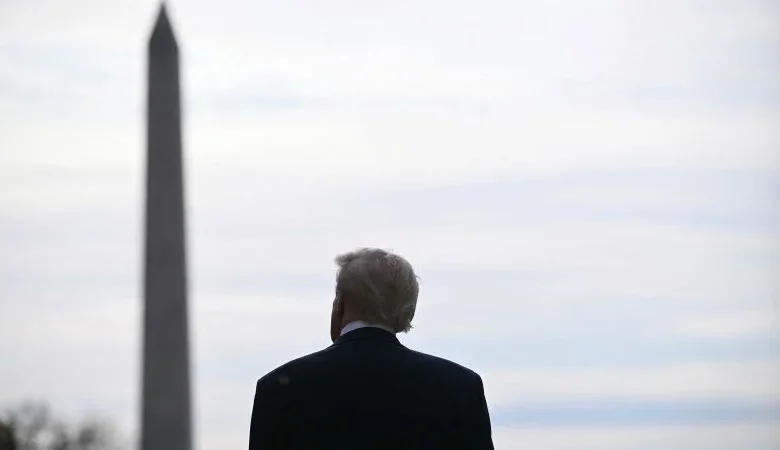After high-profile missteps, Trump seizes on a new feud and a new potential adversary

Whenever Donald Trump is in political trouble, he seeks a fight and a foil.
He will get both on Friday after one of the most misjudged weeks of his two presidencies, after his own choices eroded his political authority over the Jeffrey Epstein scandal.
Trump is embroiled in a bitter new feud with Democrats over national security, provocative rhetoric and presidential power that he deliberately turned nuclear. And at a White House meeting Friday, he’ll go head-to-head with the next mayor of New York, Zohran Mamdani, a democratic socialist he’s planning to brand as the unacceptable “communist” face of the Democratic Party next year.
Trump’s political touch deserted him in recent days. He’s heard speculation about whether his decadelong grip on the GOP base is slipping. His missteps amplified the big question over Epstein — why is he so desperate to stop the evidence coming out? And his attempt to empathize with voters over the cost of living became a farce when he accused Democrats of stealing the world “affordability.”
So you just knew the president, who has gotten more irascible by the day, would look for an opening.
And he found it, taking the chance to ignite the kind of political storm that obliterates everything in its path, drags his outraged foes onto his preferred political ground, rallies conservative media and solidifies his base.
Trump tried to seize back the initiative — in the inflammatory way that only he can — in a post of social media posts and reposts that culminated by a warning that a group of Democratic lawmakers were guilty of “SEDITIOUS BEHAVIOR, punishable by DEATH!”
His fury was provoked by a video from lawmakers who — unlike the commander in chief — were veterans of the military or intelligence services reminding members of the armed services that they do not have to obey any illegal orders.
By any objective measure, Trump’s response was inflammatory and disproportionate in the country’s current climate of political violence. After all, this was a president of the United States ostensibly calling for the prosecution and possible execution of members of Congress. That’s not just an affront to decency and presidential decorum; it’s an assault on the foundations of constitutional, republican government and the separation of powers.
And it’s dangerous. Republicans accused Democrats of inciting violence after two assassination attempts against Trump and the killing of conservative icon Charlie Kirk. It’s hard to see how this is any different. The president’s comments also contrasted with the conciliatory tone of one of his erstwhile political friends, MAGA icon Rep. Marjorie Taylor Greene of Georgia, who apologized Sunday on CNN for her role in “toxic politics.”
One of the Democrats who appears in the video expressed her shock.
“I never in a million years, thought I’d be talking to you tonight about the fact that the president of the United States has called for my death by hanging for sedition and treason. And called for it because I and a number of other people published a video that says you have to follow the law,” Democratic Rep. Chrissy Houlahan, an Air Force veteran, told CNN’s Erin Burnett.
Trump, however, loves these kinds of fights.
By any normal political standards, they’d be potential career enders for a top political figure. But Trump uses them, as he did Thursday, to get Democrats to make arguments in defense of institutions, the Constitution, civility and traditional presidential behavior. Their points are often well made. But they can often seem esoteric and off-topic to voters far from Washington who are more concerned with economic security or the cost of health care. In recent elections, Democratic warnings about Trump fracturing norms and legal constraints and threatening the “soul” of the nation haven’t always worked.
Plus, the controversies whip up Trump’s conservative media cheerleaders and activists and sets up a loyalty test for Republicans wary of breaking with him.
The country has seen it all before, multiple times: In Trump’s racist “birther” campaign against President Barack Obama; in his mockery of the late Sen. John McCain’s war record; in his false claims that he won the 2020 election. It’s a technique that has often worked for Trump. He might alienate half the country, but it’s one of the keys to his staunch support from his GOP base and his capacity to always portray himself as an anti-establishment scourge and an outsider.
One question now, however, amid some of his worst-ever approval ratings and struggles with the economy, is whether Trump’s antics may begin to disgust even some voters who have always stood by him.
Thursday’s bombshell was typical of the distraction tactics that Trump has always used and that some of his critics have sometimes accused the news media of repeatedly falling for. Yet Trump’s “distraction” gambits are often so unhinged or threatening to basic American values that it’s inevitable that they create huge shock and fierce debate. They require pushback from his opponents, even if it dilutes their messages.
As usual, Trump’s detonation of a new controversy forced Republicans on Capitol Hill to dance on the head of a political pin, with some deploying the classic excuse that they hadn’t read the posts.
House Speaker Mike Johnson gingerly tried to separate himself from the president’s comments, saying the words “are not the ones that I would use.” He told CNN’s Manu Raju that “obviously, I don’t think that this is… these are crimes punishable by death or any of that.”
Another close Trump ally, Sen. Lindsey Graham of South Carolina, said the president’s comments were “over the top.” And Kentucky Sen. Rand Paul, who has questioned the legality of administration attacks on alleged drug-trafficker boats in the Caribbean and Pacific, said he didn’t think it was a “good idea to talk about jailing your political opponents, or hanging them, or whatever else.”
White House press secretary Karoline Leavitt was asked whether the president really wanted the execution of members of Congress. She replied: “No.” But true to Trump’s lifetime mantra, she counterattacked, sketching an argument other Republicans adopted that the video was an attempt to get members of the armed forces to disobey the commander in chief.
This is a misrepresentation. But it created sufficient political heat to blur reality while making the president’s out-of-bounds outburst seem just like one side of a political back-and-forth. Johnson, for instance, said that what the legislators did was “unprecedented in American history, and it should be called out, and that’s what the president has expressed.”
Some might question why the Democrats chose to make their video — and to give the president an opportunity to change the subject after he’s spent days flailing over the Epstein matter and the cost of living. And any political move involving the military risks creating a drama that leaves servicemembers in the middle of a partisan firestorm.
A counterargument would be that there is deep concern among many lawmakers — one that is especially acute for combat veterans — that Trump will ask service members to undertake unlawful attacks and missions. This is not hypothetical. As CNN’s Aaron Blake reported, there have been many occasions when Trump’s foreign policy or military ventures have raised questions of legality.
Judges have often ruled that administration policies infringed the law. Trump has sent troops into American cities on questionable grounds. His actions near Venezuela have many on Capitol Hill fearing an illegal war. And his threats of retribution need to be taken seriously since he’s turned the Justice Department into his engine of personal retribution.
And after all, the Democrats in the video were only restating a principle that every servicemember understands — even if the question of deciding whether an order is a legal or not can be fraught and imprecise during the fog of war.
Trump’s meeting with Mamdani at the White House on Friday is high stakes for both men.
Both are New Yorkers; both won power through populist politics. Each harnessed a political moment and won power against insider, establishment elites.
But while presidential power dwarfs that of a mere mayor-to-be, some comparisons may also be unflattering to Trump, who at 79 is closer to the end of his political career than the 34-year-old Mamdani.
Trump has made his intentions clear with Mamdani. He’s setting up the mayor-elect as a political foil and a symbol of all Democrats to try to dispute their party’s more mainstream credentials ahead of the midterm elections next year. “Communist Mayor of New York City, Zohran ‘Kwame’ Mamdani, has asked for a meeting,” Trump said on his Truth Social network on Thursday.
The president threatened during the mayoral campaign to withhold federal funds from New York if Mamdani won because “as a Communist, this once great City has ZERO chance of success, or even survival!” Mamdani is not a communist, and anyone who understands the deprivations and tyranny of communist rule in the Soviet Union and elsewhere would see the comparison as absurd. But he’s been enthusiastic in his democratic socialism, and Trump will be hoping that his attacks can brand the incoming mayor and his followers nationwide as extreme.
The meeting, if it takes place in the Oval Office, before the cameras, will be a huge test for Mamdani. The president has not hesitated to humiliate some past visitors on television, most notoriously Ukrainian President Volodymyr Zelensky. But Mamdani will also know that some of the president’s ire can sometimes be defused by flattery.
The next mayor of New York City will be keen to show he can stand up to Trump — and to maneuver politically ahead of what could be a year of confrontation.
And any new eruptions by the president, after a week in which he’s looked like he’s racing off the rails, might only further underscore doubts over his political health.





